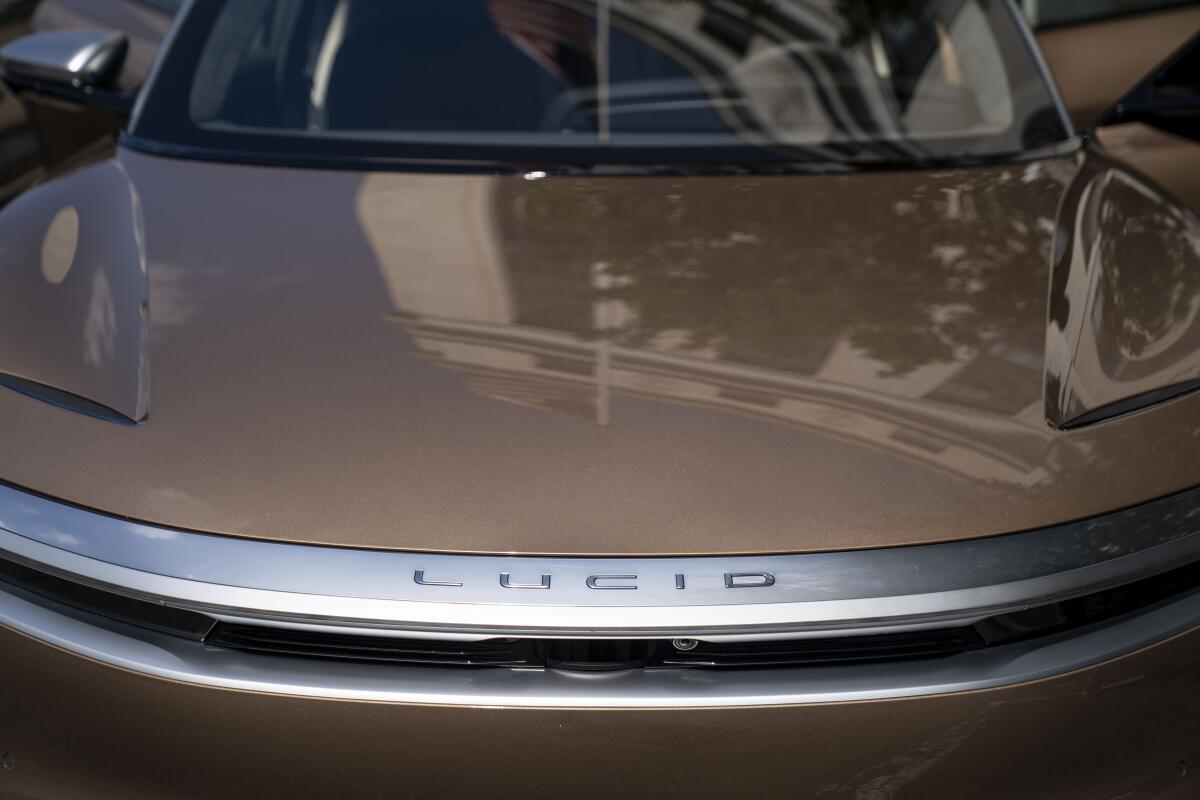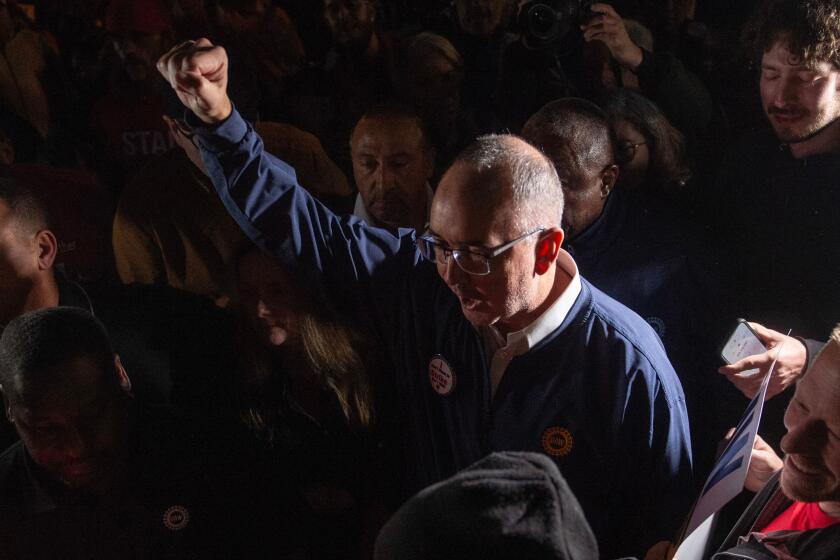EV maker Lucid illegally fired workers for union support, U.S. labor board alleges

- Share via
Electric-vehicle startup Lucid Group Inc. illegally fired two employees because they joined and supported the United Auto Workers, U.S. labor board prosecutors alleged in a complaint.
In a Tuesday filing, a regional director of the U.S. National Labor Relations Board accused the automaker of violating federal law by threatening, transferring and retaliating against employees, agency spokesperson Kayla Blado said in an email. The complaint also alleges that the company confiscated union literature and created the impression workers’ activities were under surveillance, she said.
The company didn’t immediately respond to requests for comment.
Lucid is one of 13 companies with nonunion plants that the UAW is trying to organize — an audacious effort to capitalize on recent contract victories and reverse labor’s decades-long decline in the sector. The push also targets EV makers including Tesla Inc. and foreign companies such as Volkswagen and Toyota Motor Corp.
The labor board complaint illustrates how the campaigns could become contentious.
Toyota, Nissan, Honda and Subaru are raising wages in the wake of the UAW’s Big Three contract, but their goal is to undermine the UAW.
The Lucid NLRB case was brought to the agency last February by the UAW, a sign that organizing efforts have been underway there for some time. The union has also more recently filed cases with the NLRB against several of the other targeted carmakers, accusing them of illegal union-busting.
On Thursday, 33 Democratic or independent U.S. senators sent a letter to the chief executives of the 13 automakers, urging them to comply with federal labor law and to remain neutral rather than opposing unionization efforts.
“We believe a neutrality agreement is the bare minimum standard manufacturers should meet in respecting workers’ rights, especially as companies receive and benefit from federal funds related to the electric vehicle transition,” the senators wrote.
Complaints issued by NLRB prosecutors are considered by the agency’s judges, whose rulings can be appealed to labor board members in Washington, and from there into federal appeals court. The agency can order policies changed and workers reinstated, but lacks authority to issue punitive damages or hold executives personally liable for violations.
More to Read
Inside the business of entertainment
The Wide Shot brings you news, analysis and insights on everything from streaming wars to production — and what it all means for the future.
You may occasionally receive promotional content from the Los Angeles Times.











